Physiotherapy
PHYSIOTHERAPY AND FOOTBALL
Physiotherapists aid people with the diagnosis, treatment and recovery of physical conditions and/or injuries as well as the prevention of future recurrence. These conditions or injuries fall into a category of Neuromusculoskeletal, Neurological or Cardio-Respiratory and every Physiotherapist is trained in all three areas. Physiotherapists require strong communication skills, interpersonal skills and empathy in caring for individuals during the treatment and recovery process.
The key skills required include, but are not limited to, comprehensive examination and diagnosis, formulation of safe and progressive treatment programmes, ongoing monitoring of the recovery process and efficient communication with the multi-disciplinary team.
The title of “Physiotherapist” is protected meaning someone would have to complete an accepted undergraduate or pre-registration Masters degree to call themselves a Physiotherapist. This will take between 2 and 4 years depending on the individual course and previous education. Every course will teach the fundamentals of anatomy and physiology along with theoretical and practical components of assessment and treatment. Each student will also be required to complete clinical placements as part of their course to consolidate their learning.
Entry requirements:
A minimum AAB at A Level is usually required for an undergraduate course. Biology is essential and Physical Education preferable
A minimum of 2:2 in a ‘relevant’ undergraduate degree is required for the Pre-registration MSc course


Principle Role & Responsibilities within Professional Football
Physiotherapists are the largest body of practitioner’s in Professional football and have been the mainstay of medical care within the game for the past 50 years.
The role of the Physiotherapist in football is based largely around the management of Neuromusculoskletal conditions with accurate diagnosis and treatment from inception until return to play forming much of the caseload.
The role of a physiotherapist working in football includes:
- Assessment and diagnosis of various musculoskeletal conditions
- Administration of a variety of treatment modalities
- Pre training management of players including treatment of mild issues, strapping and taping and administration of soft tissue modalities
- Liaison with Doctors, sports scientists, soft tissue therapists and other members of the multi-disciplinary team
- Delivery of individual and squad based injury prevention programmes based on past medical history and injury trends
- Implementing strategies to maximising player performance on the football field from a medical perspective.
- Reporting of all injuries to the manager/coaching staff/board etc and provide updates on all player’s rehabilitation progress
- Arrange and attend consultations with surgeons, medical personnel, MRI scans, X-rays, or any other external appointment as necessary using sound clinical reasoning
- Completing comprehensive medical records for all professional players with whom they have had contact, ensuring that these records remain confidential at all times
Although the structure at each club is different, generally Physiotherapists will be assigned to a specific team (First team, U23s, U18s etc) and will be required to travel wherever and whenever the team is playing to provide medical cover and pre match preparation. Some clubs may also designate roles between Physiotherapists eg. Injury Prevention Specialist and Rehabilitation Specialist
The role of the Physiotherapist often extends beyond the clinical setting and many find themselves organising warm up sessions, assisting with training and managing hotel bookings and pre match meals. They are often close to the managers and some will move clubs with them as part of the backroom staff.
Several Physiotherapists have gone on to become managers themselves, most notably Nigel Adkins, Les Parry and John Whitney.
Requirements – Essential
- BSc Physiotherapy or MSc Pre-registration Physiotherapy
- Registration with the HCPC
- Appropriate Indemnity Insurance
- FA Advanced Resuscitation and Emergency Aid (AREA) course or FA Intermediate First Aid for Sport Qualification (IFAS)
Desirable
- Completion of the MPA Diploma: Preparing for work in professional football
- Previous experience of working with high level athletes and treating sports injuries
- Experience of working in a team environment
- Experience in planning and delivering rehabilitation and prehabilitation programmes in elite athletes
- Extensive and advanced CPD education with particular reference to the field of sports medicine

The FMPA highly recommends
Membership of the FMPA. This demonstrates a desire to engage with and network with professional colleagues in the game and to keep up to date with the very latest in the industry via our website, forum, magazine and annual Conference
At least 2-3 years post graduate experience with an emphasis on Outpatients and Orthopaedics
Attendance of sports related Courses and events
Work experience within the sports/football sector such as volunteering at non league level
